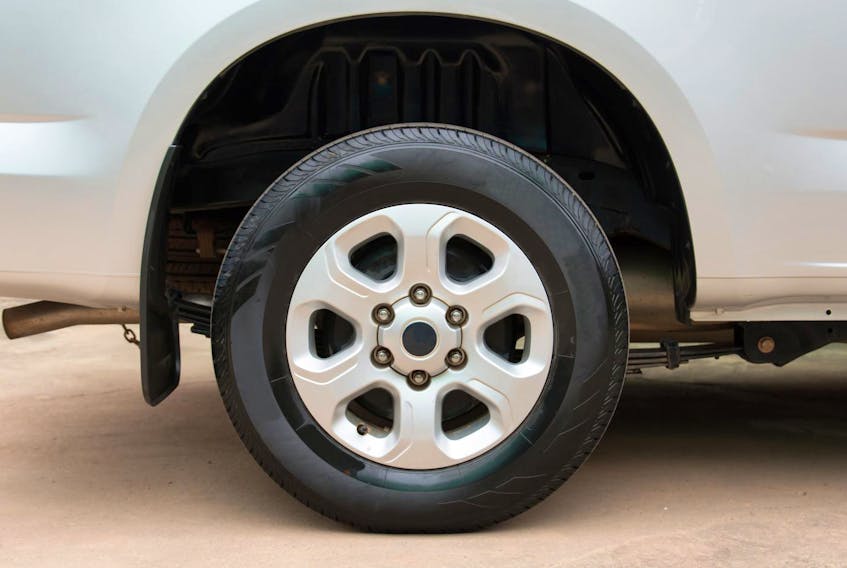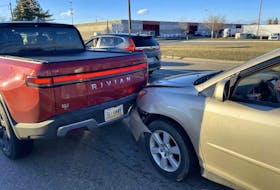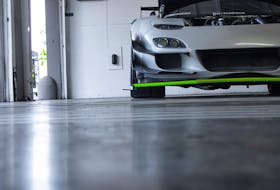Q: I recently bought an older Chevrolet pickup and have some concerns about the rear axle; It is four-wheel drive but the problem happens in two-wheel drive too.
When I go to pull away from a stop and traction is poor, there is a banging sound from the rear of the vehicle. It seems like it is coming from the rear axle but otherwise it is quiet.
I jacked up the back of the truck and turned the wheels. Everything seems smooth and free. Any ideas?
A: I suspect your truck has the G80 Locker rear axle option. This system uses a small governor weight to detect wheel spin and cause the rear axle clutches to apply so both rear tires have equal power applied to them.
If the wrong oil is used in this rear axle, or there is too much clearance in the locker mechanism, you can get a banging sound from the rear axle when traction is poor.
To test for operation and excessive clearance, jack up one rear wheel and put the transmission in neutral (block the other wheels so the truck doesn’t roll).
Spin the rear tire by hand and it should lock suddenly if the tire rpm is higher than 100 rpm (you don’t have to spin it very fast to accomplish this).
A good unit will lock much sooner than this and typically does it within two quick turns of the tire. If it takes more, then you should have the clearance adjusted using shims in the locker clutch plates. Excessive clearance will break the small governor gears and damage the differential.
You can help prolong the life of the locking mechanism by applying power slowly when starting out on slippery surfaces or when stuck. After one wheel spins, the system will lock and then you can apply more power.
Applying full power immediately at start places a shock load on the mechanism that will damage the locker unit.
If it is locking properly but still making a banging sound, change the oil to the correct fluid. It can take several times driving circles to get the oil worked into the clutch plates before the banging stops.
Q: I have a 2013 Buick LaCrosse and after I returned from holidays (I was away two weeks) I came home to fine my car battery was dead.
It started with a boost and after charging the battery I had it tested and it was fine. What would cause my battery to go dead so quickly?
A: There are many electronic modules on newer vehicles and each of them uses a small amount of battery power to keep memories powered up.
Normally, these modules are commanded to go into a “sleep” mode by a master module so they use very little power, but something as simple as keeping the keys in the ignition can prevent the modules from going to sleep when they should.
It is also possible for a module to malfunction and not go to sleep when commanded. These faults can drain the vehicle battery in less than a week.
First, make sure there were no lights left on. A glove box, trunk or under-hood light can drain the battery in about one day. Your LaCrosse should automatically turn off these lights after a few minutes, but check them first.
You can have a parasitic drain test done on the vehicle, where current is measured at the battery connection while all the modules are asleep.
It should be less than 25 milliamps drain and will typically be in the seven to 10 milliamp range. It can take several minutes for the modules to go to sleep so the drain will be higher when you first test it.
If after about 10 minutes, the drain is still higher than 25 milliamps, then either a module isn’t asleep or there is something on.
Note that after-market remote starters or audio systems are often one of the causes of battery drains.
The dealer can monitor modules with a scan tool and see which ones are not going to sleep, so this can help with detecting the problem.
Also, your battery is now about six years old. Batteries will often last about seven years. Any more than that is a bonus. Your battery may be on its last legs and be part of the problem.
Jim Kerr is a master automobile mechanic and teaches automotive technology. Send your questions for Jim to [email protected] or mail them to: Herald Wheels, 2717 Joseph Howe Drive, P.O. Box 610, Halifax, N.S. B3J 2T2









